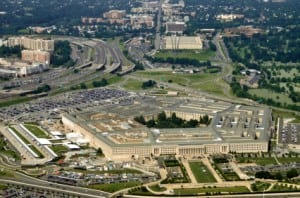
Officials on a commission tasked with reviewing the Pentagon’s current defense strategy advised lawmakers Tuesday against the White House’s plan to push for a flat defense budget and recommended at least three percent growth in annual funding to address eroding military advantages against peer competitors. The co-chairs of the congressionally mandated Commission On The National Defense Strategy told the Senate Armed Services Committee they recommend $733 billion as the floor value for the Pentagon’s fiscal year 2020 budget, above the…

 By
By 











